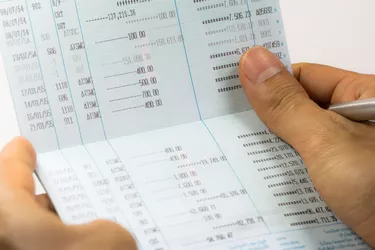
Financial institutions freeze bank accounts when they believe the accounts have been compromised. The amount of time needed to unfreeze the account depends on whether the bank or the account holder initiated the freeze. When customers request a freeze, the bank can release the freeze immediately, although it normally does not take effect until after items post that night at midnight. The time taken to release a bank initiated freeze also depends on the policy of the particular bank.
Reasons For Freezing Accounts
Video of the Day
Consumers usually freeze their bank account if they believe that their debit card or account number has become compromised. Generally, a freeze involving a lost checkbook usually results in the account being closed because thieves could access the account at any time. A freeze placed due to a debit card being temporarily mislaid does not usually require the closing of the account. Banks freeze accounts without account holder's permission if bank employees suspect fraud. This often happens when account holders use their debit cards overseas because banks view the transactions as unusual activity.
Video of the Day
Banks Removing Freezes
Banks remove freezes when seemingly unusual activity has been satisfactorily explained. This usually involves the customer having to make an in-person visit to the bank. Banks do not like to unfreeze accounts over the phone because a thief could easily pretend to be the account holder over the phone and gain access to the compromised account again. Generally, an account remains frozen until the account holder goes to a branch. This causes a major problem for people whose accounts are compromised while abroad.
Consequences Of Frozen Accounts
An account freeze prevents any credits or debits posting to the account. Regular direct deposits are rejected and returned to the originating bank. Automatic debits and transfers are not paid and this can lead to late fees at other institutions. People concerned about certain transactions posting to their account can ask the bank representative placing the freeze to make it a debit only freeze. This limited restriction still allows incoming transactions to post. You cannot selectively freeze debits.
Freezing Alternatives
Banks do not have to freeze customers bank accounts if the debit card seems to have been compromised. Closing the debit card or disconnecting it from the account will prevent a thief from using it. Canceling online access prevents unauthorized Internet based transactions and people can place unlimited stop payments on checks. People who want immediate access to funds in frozen accounts can establish a new account and transfer remaining funds before activating the freeze.